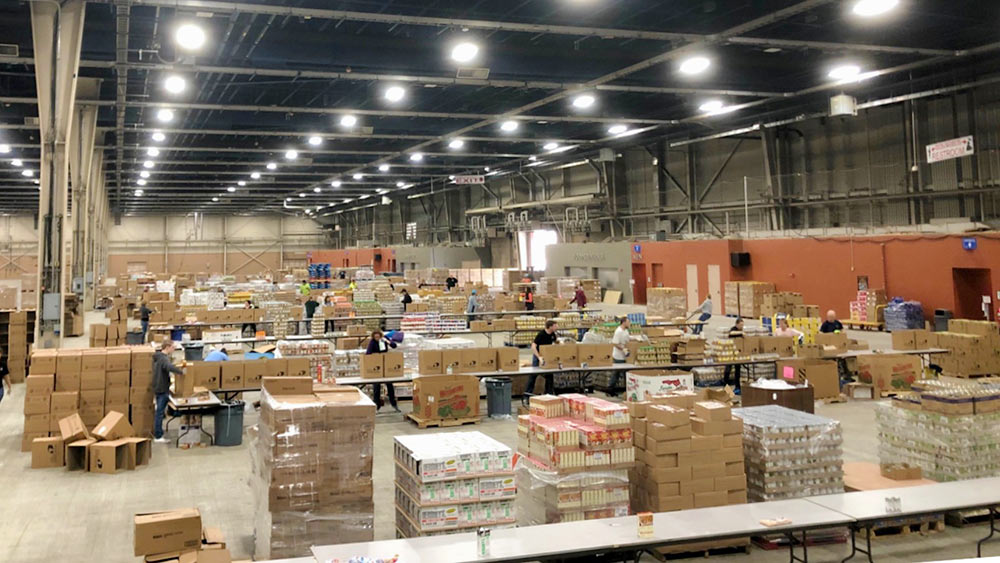
Local nonprofits are on the front lines of the coronavirus crisis. They are working tirelessly with health care institutions, government agencies and each otherto beat back the disease and ameliorate its impact on vulnerable individuals and communities.
LanCo MyHome
"We've been really moving mountains," said Jennifer Koppel, executive director of Lanc Co MyHome (Lancaster County Homeless Coalition).
Since mid-March, she's been working 10- to 15-hour days to bolster services for Lancaster's unhoused population amid the pandemic.
Right away, community meals had to be overhauled. It was no longer safe to serve food person-to-person, especially for the elderly and those with underlying health conditions.
Then, money had to be found so the county's winter shelters, which normally would have closed April 3, could keep their doors open. A day shelter is being set up, which requires more funding, staffing and coordination with other partners.
And that's only the tip of the iceberg. Koppel said she's been heartened by the amount of support and cooperation Lanc Co MyHome has received.
"I'm super impressed with the community, as I always am," she said.
Central PA Food Bank
Joe Arthur is executive director of the Central PA Food Bank, which delivers food to partner nonprofits in Lancaster and 26 other counties. It has increased its output about 25% to cope with fresh demand stemming from the crisis, he said.
It also had to retool its operations, securing temporary quarters and setting up an industrial-scale distribution operation tailored for extra sanitization and appropriate social distancing. There, 50 to 60 volunteers a day break down pallets from the Food Bank's commercial partners — food donations from individuals and households are no longer being accepted — and assemble care packages for shipment and delivery. Each contains enough nonperishable food to feed a family for about four days.
Between the additional logistical costs and the higher output, the Food Bank is spending about $100,000 a week more than normal, Arthur said.
United Way of Lancaster and Lancaster County Community Foundation
Nonprofit leaders are well aware the crisis is still only beginning. Infections and deaths continue to climb. Meanwhile, businesses are closing and layoffs are mounting at staggering rates, portending a wave of economic hardship as bad or worse as that of 2008.
In response, the United Way of Lancaster and the Lancaster County Community Foundation launched the Lancaster Cares COVID-19 Response Fund. Seeded by the foundation with a $250,000 initial gift, the fund ultimately aims to raise $1 million to support local nonprofits as they help families and individuals weather the pandemic and the economic disruption it is causing.
Donatins can be made at LancoCares.org. More than $330,000 had been raised as of Thursday. The Central PA Food Bank and LanCo MyHome were the first two organizations to receive allocations.
The United Way of Lancaster County has shifted into high gear to ensure that nonprofits' efforts are appropriately coordinated and crisis needs are being addressed, president and CEO Kevin Ressler said.
Meanwhile, working with Berword Yost, director of the Center for Opinion Research at Franklin and Marshall College, it's developing a survey and needs assessment to plan for the next phase of the coronavirus response, and the phase after that.
It's been beautiful to see the community coming together, Koppel said. Maintaining that spirit will be vital in the days and weeks ahead: "It's a marathon, not a sprint."
Said Arthur: "We can do the job for months if we need to. ... We're going to be here however long the battle takes."
How can I help?
- DONATE: Most nonprofits operate on tiny budgets, and a financial donation, if you can afford it, is far and away the best way to help. Support the charity of your choice, or contribute to LancoCares.org, the Lancaster Cares COVID-19 Response Fund. If an organization cancels its fundraising dinner or other event, send in the check with the amount you were planning to give.
- VOLUNTEER: These days, the desire to volunteer must be balanced against health concerns and the need to practice social distancing. To learn about opportunities, visit the United Way's volunteer page. Also, think about ways you can help from home: Making masks, checking in on neighbors by phone, etc.
- SPREAD THE WORD: When you see a nonprofit making a difference, don’t be shy: Give them a shout-out or send them a thank-you note. Highlight the good you see people doing.





